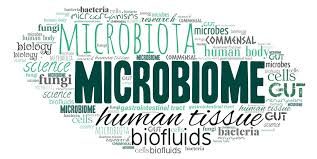Our digestive systems harbour more bacterial cells than there are human cells in our bodies. Although the often-mentioned estimate of a tenfold excess of microorganisms over human cells might exaggerate the ratio1, even conservative estimates2 accord the microbes numerical dominance at a ratio of about 1.3:1. These close gut microbial neighbours of ours comprise around 0.3% of a person’s mass2, and there are more than 100 times more bacterial genes in the gut3 than there are genes in their human host. Interest has burgeoned in the potential effects of these normal gut residents (sometimes termed commensal bacteria) on our well-being. Writing in Nature, Vieira-Silva et al.4 report an unexpected discovery, regarding patterns of gut microbes, that might have clinical consequences.
When trying to assess the daunting complexity of the many thousands of bacterial species in our gut, one option available is a categorization method5 that assigns an individual’s microbial profile to one of four groupings called enterotypes (Fig. 1), depending on the abundance of signature species. Those of us not immersed in the world of bacterial binomials owe a debt of gratitude to the colonically oriented colleagues who came up with this and other possible classification approaches.







